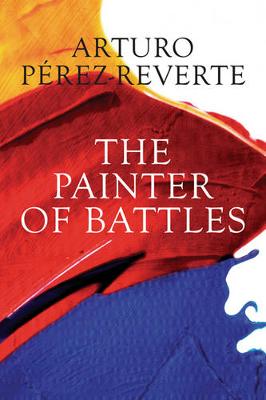Reviewed by empressbrooke on
The main character, Faulques, is a former war photographer who has retired to an old tower to paint a mural of battles, an attempt at catharsis after what he had seen and lost. A soldier who he had photographed, Markovic, shows up and announces that he is going to kill him, starting off a long conversation between the two regarding the nature of man and war.
I would say it would be characteristic of me to prefer actual plot to philosophizing in a novel, but to my surprise, every time the book left the main discussion and flashed back to the photographer's past and his relationship with his lover and their travels through war-torn areas, I nearly fell asleep. The lover, Olvido, is the sort of creature that only exists in fiction, or perhaps only in the minds of men who are dreamers who conjure up untouchable women one can never really know. She is prone to the most ridiculous, romantic (in both senses of the word) dialogue that no real person would ever consider saying. The descriptions of her reminded me of an article I read about overrused elements in YA novels - "Does your character have magical green eyes? Do you keep mentioning them?" It seemed almost tragic to see it in literate fiction.
It was always with relief that I would return to the main conversation, leaving ridiculous Olvido behind. Pérez-Reverte was a war journalist himself, which adds considerable weight to the philosophizing. The conversation between Falques and Markovic is deep and uncomfortable and deserves more than two stars, but I resented Olvido's interruptions so much by the end that I can't bring myself to give it more.
Reading updates
- Started reading
- 4 January, 2009: Finished reading
- 4 January, 2009: Reviewed
